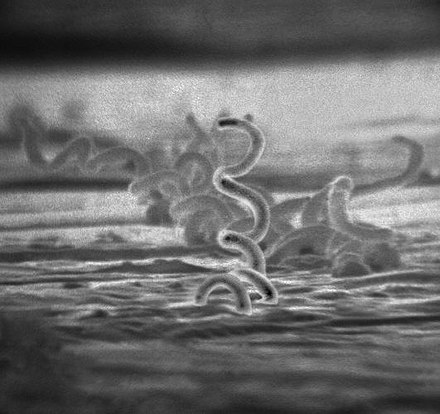A spirochaete (/ˈspaɪroʊˌkiːt/) or spirochete is a member of the phylum Spirochaetota (/-ˈkiːtiːz/), (synonym Spirochaetes) which contains distinctive diderm (double-membrane) gram-negative bacteria, most of which have long, helically coiled (corkscrew-shaped or spiraled, hence the name) cells.
Many organisms within the Spirochaetota phylum cause prevalent diseases. Pathogenic members of this phylum include the following:
- Leptospira species, which causes leptospirosis
- Borrelia burgdorferi, B. mayonii, B. bissettiae, B. garinii, B. afzelii, B. spielmanii, B. lusitaniae, which cause Lyme disease.
- Borrelia recurrentis, which causes relapsing fever
- Treponema pallidum subspecies which cause treponematoses such as syphilis and yaws.
- Brachyspira pilosicoli and Brachyspira aalborgi, which cause intestinal spirochaetosis




No comments:
Post a Comment